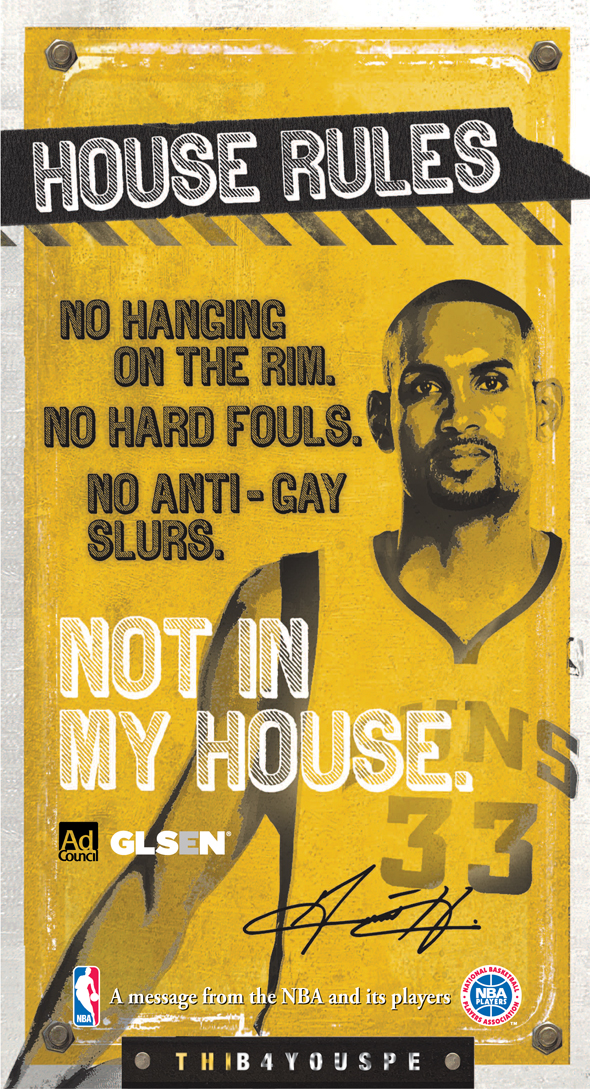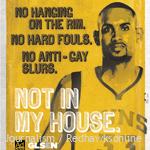Think before you speak
Offensive phrases go beyond the traditional four-letter words
By Maddie Binning, Talon staff writer
“Words said in jest still sting,” said English teacher Janet Johnson as she considered how her students speak. As freshman Nicole Rodger knows all too well, some of these words don’t only hurt the intended recipient, but also those around them.
In recent years, Rodger has noticed the rise in use of derogatory words like “retarded”.
“I have an aunt who has Down’s Syndrome,” said Rodger. “And it really hurts when people use the word retarded as an insult when it is the way she was born. She is one of the kindest people I know.”
Rodger is not only thinking of her aunt.
“My cousin Mikey has cerebral palsy,” said Rodger. “He cannot help his condition and, because of his condition, he cannot do the simple things in life-like going to the bathroom, eating and even talking. I really think that people should stop using these words.”
University of Minnesota professor Kendall King believes that these words are used to target certain attributes.
“People use these words because they describe groups that are considered to have less power,” said King, who teaches graduate-level courses in sociolinguistics, language policy, language research methods and language education. She also stated that they are used because of the negative connotation with words like “retarded”, “gay”, etc. “It’s just like when boys say ‘Oh you’re being a girl’ to a friend.”
 Junior Leif Conway agrees that such words are offensive.
Junior Leif Conway agrees that such words are offensive.
“Each of them are subject to a certain type of person,” said Conway. “When they are used negatively, it implies that what they are is a bad thing.”
Conway does his best to use respectful language.
“I know I wouldn’t want people using words that offended me,” he said.
Use of offensive language can be a big issue in school. Principal Nancy Johnson stated that she trusts the faculty to help with the issue. She said that the language we use “shows class and intelligence.” Therefore, she encourages students to take a look at how they speak.
Senior Rachel Worthman describes them as “derogatory slurs of their former meanings.” In her daily life, she hears “gay” used as an insult most often. “They are used in place of hate words or disrespectful descriptions,” said Worthman.
Augsburg professor John S. Schmit believes that these terms are used for a variety of reasons. Schmit, a member of the English Department with graduate training in sociolinguistics, said that these terms are sometimes used by people to describe behavior that is considered “out of the norm.”
Junior SuLin Kelley has decided to never use these offensive terms.
“They discriminate towards people just because they live a certain way, or are born into a certain category,” said Kelley.
Freshman Megan Thurow knows the hurtful effect of these words on others from her friends’ experiences. Many people she knows are offended by these words, so she does her part in keeping Minnehaha’s environment a good one.
“People just don’t think other people will take these words the wrong way,” said Thurow. “I know some people who will say things like that everyday.”
A freshman boy brought up the point that most people don’t think of them in that way, though he does agree that they are offensive.
“They can’t associate with the meaning of the words, so they don’t care,” he said. “If I’m having a conversation with other guys, chances are pretty good that I’ll hear ‘retard’ and ‘gay’. If I’m talking with girls, then it’s pretty safe to say that I won’t.”
Director of Diversity Paulita Todhunter observed that these words are not synonymous with their implied meanings.
There are many more terms used that we don’t realize could be offensive and Todhunter offered a simple solution.
“Whether in advisory or some other setting, we need to have opportunities for students to talk about this,” she said.
The Rev. Dan Bergstrom hopes that people will realize that “language reflects where a person is.” Bergstrom said that it all boils down to context because it is important to those with whom these words are associated.
“Living together in a community means we try to get along,” said Bergstrom. “Sometimes that means changing just for the sake of peace between people.”

